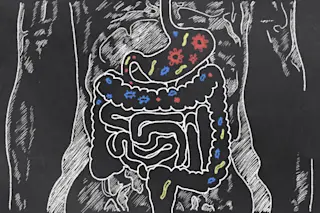After decades of research have yielded nothing but flip-flopping dietary advice sprinkled with the occasional scientific scandal, many health-conscious people are placing their trust elsewhere.
Just walk down any aisle of a Whole Foods to find health claims ranging from benignly naturopathic, to pseudo-scientific, to outright anti-scientific. It seems people would rather put faith in a fad diet promoted by a blogger, some guy with a book deal, or their cousin’s sister-in-law on Facebook than advice from doctors and nutrition researchers.
We can’t blame them. Just last month, one of the most prominent researchers in diet and nutrition, Brian Wansink, was removed from his positions at Cornell University after facing allegations of research misconduct. You might remember hearing that your plate size affects how full you feel, or that people duped with a refilling trick bowl eat way more soup than they do when they have to ask for a ...














